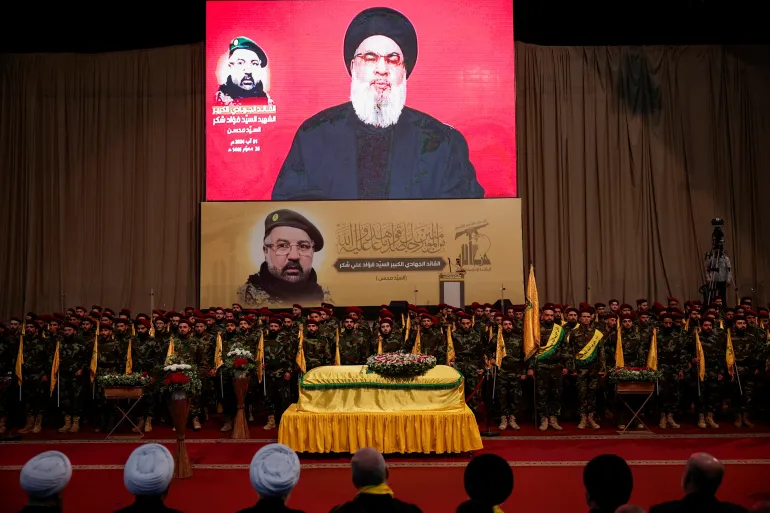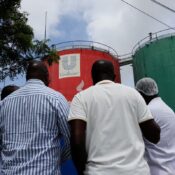
Hezbollah’s leader has indicated that additional attacks against Israel are feasible
Sayyed Hassan Nasrallah, the leader of Hezbollah, stated on Sunday that his organization would evaluate the consequences of its missile and drone assault on Israeli military targets earlier in the day before deciding whether to conduct additional attacks in order to avenge the death of a commander.
In a televised address, the commander of the Lebanese armed group denied that the Israeli military’s preemptive strikes had prevented a broader attack by the group, asserting that the attack had been carried out as planned.
Nasrallah, speaking approximately 12 hours following the most intense exchange of fire between Iran-backed Hezbollah and Israel since hostilities erupted in parallel with the war in Gaza, stated that the group had deliberately refrained from targeting civilians or public infrastructure, including Ben Gurion Airport in Tel Aviv.
The group’s primary objective, according to him, was a military intelligence facility located approximately 110 km (70 miles) within Israeli territory. This was the most profound attack to date, and it occurred just 1.5 km (1 mile) north of Tel Aviv.
Nasrallah stated that the group would evaluate the outcomes of the operation, which was conducted in response to Israel’s assassination of Hezbollah’s top commander, Fuad Shukr, on the outskirts of Beirut last month.
“If the result is not enough, then we retain the right to respond another time,” Nasrallah indicated.
“Hezbollah fighters had successfully launched a volley of over 300 Katyusha rockets to distract Israel’s Iron Dome defenses before sending attack drones,” he stated.
He stated that the group discharged drones from the eastern Bekaa Valley for the first time. He stated that Israel’s preemptive assaults did not result in any damage to the drones or projectile launchers.
Nasrallah denied that Hezbollah had intended to launch thousands of projectiles, specifically refuting Israeli military assertions that the organization had planned a more extensive attack.
However, he acknowledged that the operation had been postponed for a variety of reasons, one of which was the “mobilization” of Israeli and American military assets in the region.
All Categories
Recent Posts
Tags
+13162306000
zoneyetu@yahoo.com


